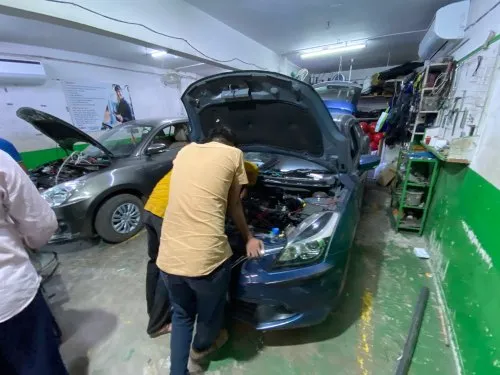Nigeria is making meaningful progress in its strive to adopt Compressed Natural Gas (CNG) as a cleaner and more affordable alternative to traditional fossil fuels. Over 125 CNG conversion centers are now operational across the country, surpassing the initial target of 100, so this shift is gaining interest among Nigerian motorists.
Michael Oluwagbemi, CEO of the Presidential Compressed Natural Gas Initiative (P-CNGI), says President Bola Tinubu has directed the conversion of one million commercial vehicles to CNG at no cost to their owners. “This time last year, the country had just seven conversion centers, and we promised to deliver at least 100 of them this year. Already, we have well over 125,” Oluwagbemi said.
The initiative prioritizes commercial vehicles, which account for 90% of daily passenger conveyance. According to Oluwagbemi, “Commercial vehicles are responsible for 90% of conveyance of passengers in the country every day, thus the need to prioritize commercial vehicles’ conversion.“
The CNG market’s growth has already created jobs for over 20,000 people. However, there are still challenges, particularly in the northeast and northwest regions, where gas pipeline infrastructure is lacking. To address this, plans are underway to link these states to the Ajaokuta Kaduna Kano Gas pipeline project.
“The availability of gas is still a challenge, especially at the conversion centers because once they convert, they need to top up with gas in order to calibrate,” Oluwagbemi noted. The P-CNGI is working with the private sector and the Nigerian Midstream and Downstream Petroleum Regulatory Authority (NMDPRA) to develop innovative mobile refueling units.
According to Dada Olusegun, Special Assistant to the President on Social Media, traveling from Abuja to Lagos will cost only N10,000 with CNG vehicles. Highlighting the benefits of CNG vehicles, Olusegun said, “Prices apart, we are moving very fast away from fossil fuel, and President Tinubu remains committed to ensuring our vast gas reserves are maximized for the sustainable development of our economy.”
With the current hike in fuel price, @innosonvehicles has just presented more CNG (Compressed Natural Gas) and LNG (Liquidified Natural Gas) powered vehicles. These vehicles are cheaper and more efficient than fuel powered vehicles. Am looking forward to their electric vehicles🙌🏽 pic.twitter.com/Vl27Bsr0At
— Chigozie I. Alex (@Chigozieialex) June 6, 2023
Nigeria has attracted huge investments in CNG, with $175 million invested as of September 2024. An additional N80 billion worth of CNG investments were generated within the last week. Four companies were awarded N122 billion for CNG-related gas development projects.
As Nigeria transitions away from crude oil products, embracing CNG as a viable alternative will help sustain rapid development and transformation. With the government’s commitment and investment, this cleaner energy source is poised to revolutionize the country’s transportation landscape and ease the burden of high costs on many Nigerians.
Comment, Like 👍, share this article, and Follow us on our social media handles.








